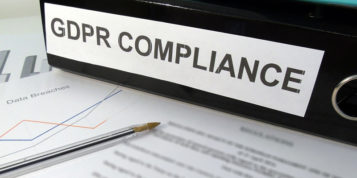The digital marketing industry faces a challenge due to regulatory restrictions on the use of customer data, but it also creates a new opportunity to engage a more positive customer base and improve content along with the customer experience
From May 2018 the way businesses gather, store and use data from their customers will completely change with the arrival of the new EU wide General Data Protection Regulations (GDPR).
For a business world now much more reliant on data and information, GDPR presents a number of challenges by transforming the way companies can gather data, requiring customers to actively “opt in” and provide their consent for their information to be used for specific purposes.
As an example, if a customer is asked to hand over their email address, they must be told exactly what their information will be used for and give explicit consent – for instance to receive information on offers.
Specifically, the regulation states that consent should cover “all processing activities” and that when processing has multiple purposes “consent should be given for all of them”.
Essentially, this means that if a business wants to use a person’s information for more than one reason – like an email marketing campaign and to receive a regular newsletter – the consumer must give consent for both uses in the first instance, or give consent for each use separately.
For customer-facing businesses – and marketing departments in particular – these stricter regulations threaten to derail growth by restricting the amount of data businesses have access to.
It also leaves companies facing extensive fines and punishments if they are found to be in breach of the regulations, potentially as much as €20m or 4% of global turnover, which will likely make them more risk averse when pushing boundaries with data use.
However, GDPR also presents a genuine opportunity for those in digital marketing to become more innovative to encourage customers to give up their data, improving customer engagement while also increasing confidence by demonstrating they are handling consumer data responsibly and securely.
Encouraging creativity
While on the face of it GDPR acts as a restrictor to obtaining customer information, it actually only changes the way data is obtained by putting the emphasis on opting in, rather than opting out.
For marketers, this presents a new opportunity to become more creative and innovative with their campaigns, making it worth a customer’s while to sign up to receive material in the first place. In addition, in a content marketing world, marketers will have to try harder and put more emphasis on the value provided for which someone provides their contact details in exchange.
In addition, new technology is offering better platforms to engage with consumers in a more interactive and immersive way, whenever and wherever they are.
Offering these new experiences will be a sure way to encourage consumers to continue signing up to receiving updates and information, and will mitigate the restrictive effects of GDPR.
Apple’s new ARKit for example means businesses can create augmented reality tools to engage with customers. Putting this in a retail context, marketers could allow consumers to preview products they might be interested in directly on their phone.
A more responsive customer set
Despite currently having access to data from millions of customers, it is worth remembering that many of these consumers will have handed over their information without thinking about it – not necessarily because they really want to receive further communications.
This leaves businesses with an extensive, but diluted, database.
With GDPR requiring customers to actively opt-in to handing over their data, businesses can actually be much more confident that they are engaging with an already interested customer base, and can be much more focussed on how they go about their work and campaigns.
In that sense, GDPR actually does a lot of the work filtering out those customers who are simply never going to engage with a business after making a purchase, and instead leaves them with a much more primed audience.
Increasing trust
The main purpose of GDPR is to increase accountability when it comes to data use and safety.
High profile cyber-attacks against both public and private organisations in recent months and years has decreased trust among consumers when it comes to how their data is used, with research revealing that 57% of consumers no longer trust an organisation to use their data responsibly.
By demonstrating that they are taking GDPR seriously and making every effort to comply with a much stricter set of data privacy and security measures, businesses can start to regain and rebuild that broken trust with consumers, and make them more willing to hand over their information.
Ultimately GDPR does present a challenge for businesses, and it may take some for the new status quo to kick in and for companies to understand how best to work in a more regulated environment.
But, for those businesses able to adapt, GDPR is the first step in beginning a new relationship with their customers, and one which could see great benefits for both sides.





